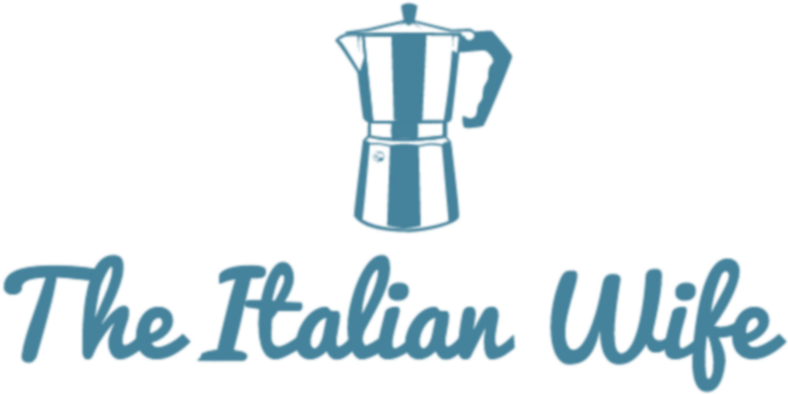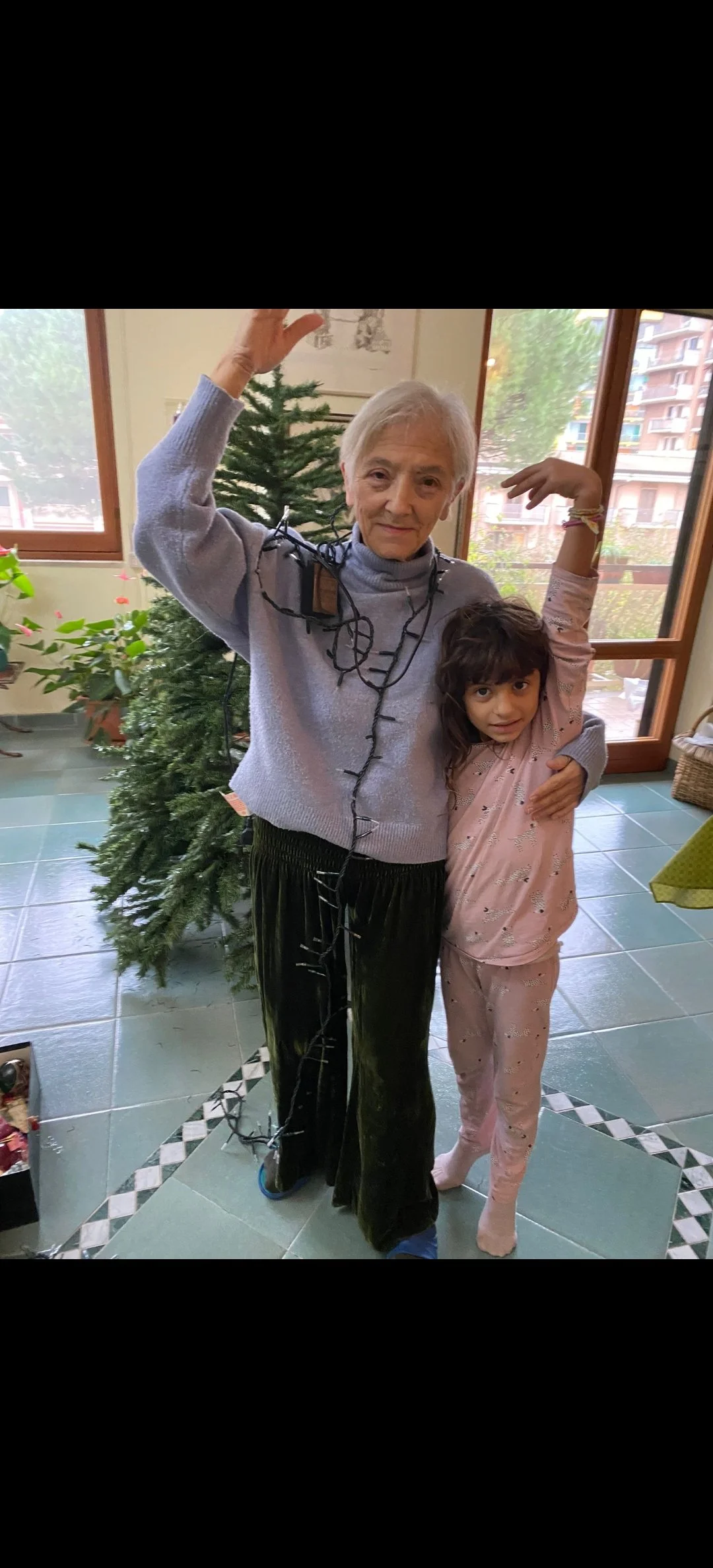Per fare un albero
Mamma non ha mai provato a nuotare, ma per una vita, almeno la nostra vita con lei e poi la vita delle sue nipoti con lei, si è messa sulla battigia ogni volta che facevamo un bagno a mare, unendo le mani in avanti e poi allargando le braccia verso l'esterno come se nuotasse nell'aria, o mimando le bracciate dello stile libero e del dorso, a metà tra Geppino l'istruttore di nuoto della piscina comunale di Mercogliano per il quale se non sapevi nuotare a farfalla restavi nel gruppo principianti anche per anni, e Tancredi, temutissimo vigile urbano e direttore del traffico, passato alla storia per aver sequestrato almeno l'80 per cento dei motorini in città negli anni 90.
Ancora la vedo lì sulla riva del mare calabrese coi suoi piedini quadrati a pinna e il costume intero degli anni 70, in lycra nera lucida coi fiori color pastello che sembrano dipinti, scollatissimo sulle sue tette che sono state la mia prima casa, tra una bracciata nell'aria e un'altra si abbassa verso il mare e si bagna la testa, poi con le dita si mette i capelli dietro le orecchie. Se io e mia sorella non le facciamo caso ci chiama e ricomincia a nuotare nell'aria con le sue pinne affondate nella sabbia.
Non ha mai smesso di farlo, non ha mai smesso di insegnarci tutto, anche quello che lei non sapeva fare. Forse era il suo modo di spingerci a non avere le sue paure, ad essere migliori di lei, o più probabilmente era il suo modo di esserci in ogni cosa, anche in quelle in cui non aveva apparentemente nulla da dare.
Ma allora perché proprio su come curare le piante, le sue cazzo di bellissime piante, non ci ha insegnato niente?
Abbiamo passato le ultime settimane ad affogare piante che non volevano acqua, a far seccare altre che ne volevano, a fare foto alle foglie per cercarle su Google Lens, a ripiantare bulbi che aveva appena piantato lei e che sono fuorusciti dal terreno per protesta.
Una punizione da contrappasso per tutte le foto di gelsomini e plumbago in fiore che ci mandava orgogliosa e a cui rispondevamo distrattamente “ah sì bello”.
Quale cazzo è il plumbago, mamma? Perché ci facevi vedere come nuotare se non lo sapevi fare e papà già ci aveva insegnato tutto, e non ci hai detto piuttosto quando annaffiare la Kerria giapponese?
“Per fare tu-utto ci vuole un fio-o-re" mi avrebbe risposto mamma cantando senza risolvere i mie dubbi.
"Non annaffiate niente e vedete che succede" ha risposto invece avventurosamente il fioraio interrogato da mia sorella.
"Le piante ti diranno loro quando hanno bisogno di acqua, parla con loro" ha risposto più poeticamente quella romanticona di Adriana.
Eppure io sono convinta che sta cosa che ci dobbiamo sbattere per le sue piante è il suo modo di continuare ad insegnarci qualcosa - proprio una delle cose in cui era più brava - da lontano. Dalla battigia, senza entrare in acqua. Proprio come quelle bracciate nell'aria erano un modo di esserci nei momenti importanti della nostra vita, un ricordo a cui aggrapparsi oggi e sorridere, un seme lasciato là apparentemente senza un senso. Invece, come dice Sergio Endrigo, le cose di ogni giorno racchiudono segreti a chi le sa guardare ed ascoltare.
E, mai come in questo caso, per fare l'albero ci vuole il seme.
To make a tree
Mum never tried to swim, but for a lifetime, at least our lives with her and then the lives of her grandchildren with her, she stood on the shoreline every time we went swimming in the sea, putting her hands together and then extending her arms outwards as if she were swimming in the air, or mimicking the strokes of the freestyle and backstroke, halfway between Geppino, the swimming instructor at the Mercogliano municipal pool for whom if you couldn't swim butterfly you stayed in the beginners' group for years, and Tancredi, the feared traffic warden who went down in history for confiscating at least 80 per cent of the motorbikes in the city in the 1990s.
I still see her there on the seashore of the Calabrian sea with her square fin feet and her one-piece swimming costume from the 1970s, in shiny black lycra with pastel-coloured flowers that look like paintings, low-cut over her boobs that were my first home, between one stroke in the air and another she reaches down towards the sea and gets her head wet, then with her fingers she tucks her hair behind her ears. If my sister and I don't pay attention to her, she calls us and starts swimming through the air again with her fins sunk into the sand.
She never stopped doing it, she never stopped teaching us everything, even what she didn't know how to do. Perhaps it was her way of pushing us not to have her fears, to be better than she was, or more likely it was her way of being there in everything, even in those where she apparently had nothing to give.
But then why did she teach us nothing about how to care for plants, her bloody beautiful plants?
We have spent the last few weeks drowning plants that didn't want water, drying out others that did, taking pictures of leaves to look them up on Google Lens, replanting bulbs that she had just planted and which spilled out of the ground in protest.
A counter punishment for all the photos of jasmine and plumbago in bloom that she sent us proudly and to which we absent-mindedly replied 'ah yes beautiful'.
Which on earth is plumbago, mum? Why did you show us how to swim if you didn't know how to do it and dad had already taught us everything, and didn't you rather tell us when to water the Japanese Kerria?
"To do every-thing you need a flo-wer," Mum would have replied, singing without resolving my doubts.
"Don't water anything and see what happens," the florist my sister questioned replied adventurously instead.
"The plants will tell you when they need water, just talk to them," replied Adriana more poetically.
Yet I am convinced that this struggle we have to do for her plants is her way of continuing to teach us something - just one of the things she was best at - from afar. From the shoreline, without going into the water. Just as those strokes in the air were a way of being there in the important moments of our lives, a memory to hold on to today and smile, a seed left there seemingly without meaning.
Instead, as Sergio Endrigo says, everyday things hold secrets for those who know how to look and listen.
And, never as in this case, it takes a seed to make a tree.


